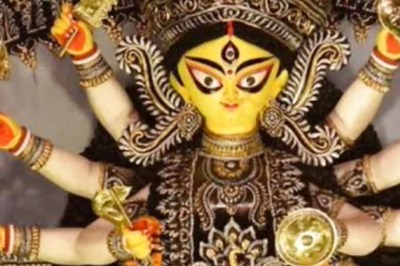
views
"Brahmanvadita Ghabrayi, Bhim ki Sena Aaayi... Jaati Todo Samaaj Jodo Yahi Hai Asli Kamayi" (The age-old Brahmanical structure is now afraid as the Bhim army arrives... Breaking down caste-differences and unifying the society is the real deal).
When perpetually subjected to caste-based discrimination in schools and elsewhere, almost a dozen Delhi-based Dalit teenagers decided to drop out and went on to form a musical band of their own and named it after one of the tallest leaders of the community, Savitribai Phule. Four years since, they have been performing their way to social awakening of the prejudiced while facing strong opposition from their own families as well as those who normalise the bigotry in the name of age-old practices and upper-caste pride.
In an apparent Dalit "ghetto" in Delhi's Karol Bagh, set in a tiny room is the band's official practice area. What, during the early part of the day looks like a rather mundane 1BHK flat, becomes abuzz with loud musical instruments and brave lyrics of Dalit fight back as the afternoon approaches.
The teens meet every day after lunch to decide on the lyrics of their next song which is generally derived from books written by Dalit leaders such as B R Ambedkar, Kanshi Ram, Savitribai Phule, among others. The verses are then juxtaposed with ongoing issues that the band feels need attention. Every member contributes to the lyrics of the songs.
The teens are part of a community-run group named Ideal Youth Welfare Centre that helped getting them together to form the now famous band.
The musical ensemble initially started off as an all-girl band in 2014, in which Ekta was the lead singer. The 15-year-old girl had to quit school when she was 11 because of continuous caste and skin-colour-based discrimination.
"I was made to sit on the ground for no reason at all. The teachers would say that there is no place to sit. Both, the teachers and students used to make fun of my dark skin colour. It happened almost every day," said Ekta recalling her days in school when she was in the sixth standard. The teen also explained how her peers would forcefully rub chalk dust on her face, making her all the more conscious of her skin, which eventually led to her abandoning school in the same year. Ekta is now pursuing her studies through NIOS.
Similar is the case with almost every other member. However, this is not the only challenge. This dissenting musical troupe has had to face stiff opposition from various groups of mindsets. Families to begin with.
Fifteen-year-old Varsha, who happens to the a rapper in the band was forced to stay home by her family when she told them about it. She recalls how her elder brother once locked her into a room to stop her from participating in the musical activities. "My own brother did not support me. He said no girl from the family has ever done this, how can you. I literally used to shout at my parents and run away from there. They keep telling me how nobody will marry me if I continue like this. I don't want to," said Varsha, preparing to write her next rap, not concerned about societal opposition anymore.
There have also been instances when it got physically dangerous for the youngsters. One afternoon while performing at Jantar Mantar for a protest rally which hardly had 100 people, the band was about to be attacked by an army of orange clad men who called themselves "gau-rakshaks".
Sixteen-year-old Aman was in the front row of singers during the incident. "All we were doing was protesting against an issue where we thought the government needs our attention. Out of nowhere almost 300 men came and started shouting and pulled our mics away and ordered us to stop performing. It was very scary. Our elders came running and after almost an hour of coaxing, we resumed performing," said Aman who has also dropped out of a formal school and is pursuing standard tenth from NIOS.
Apart from the burgeoning social pressure, financial constraint is also a deciding factor for almost all decisions that these teens have taken so far. There are sons and daughters of daily wage labourers, domestic helps, fish-sellers along with unemployed parents in the band. Buying expensive instruments is therefore not a possibility. The band only owns a harmonium, a bongo and an electronic drum pad with most of the members singing.
While the past, the group admits, was bleak, they are looking towards a brighter future fuelled by the passion to sing. All of them want to continue studying and take up social and political sciences in college while continuing the band. The troop has a common goal of transforming the rigid caste-system in the country through music.
Who can do it better than kids who have faced it head-on.

















Comments
0 comment